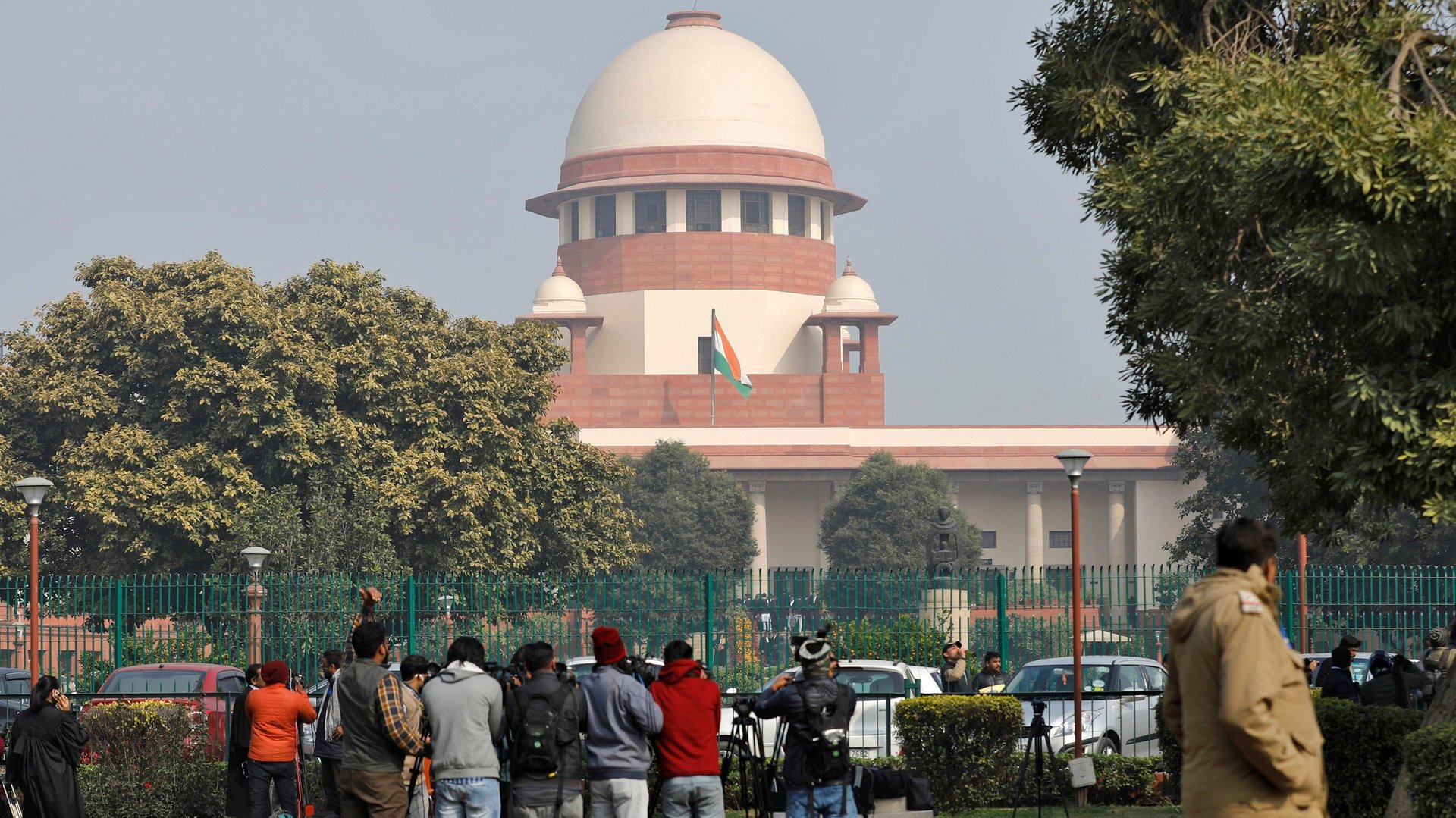Female representation in Indian judiciary is dismal—and that’s keeping sexism alive
It is 2020, and India has never seen a woman become chief justice.


It is 2020, and India has never seen a woman become chief justice.
This fact is only more poignant in the light of US Supreme Court justice Ruth Bader Ginsburg’s death on Sept. 18. As the second female justice in the highest US court, her life and work have been inspirational to countless women in the country and elsewhere. In India, though, the idea of a gender-balanced judiciary is far from becoming reality.
Not only has no woman ever been chief justice of the Indian supreme court, the representation of women across different courts and judicial bodies is also abysmally low, according to data collected by Smashboard, a New Delhi- and Paris-based non-profit that focuses on fighting sexism.
These are by no means the first voices to be raised against rampant sexism in Indian courts.
Sexism through the ranks
In March 2019, attorney general KK Venugopal remarked that senior advocate Anand Grover was appearing in court for his wife, Indira Jaising. Jaising, a senior supreme court advocate herself, took exception to her being referred to merely as someone’s wife in a formal courtroom setting. “Mr Attorney General you should withdraw his remark. I am a person in my own right,” she had said.
She later apologised and explained why Venugopal’s comment irked her. “I am sorry that I lost my temper Mr Attorney. We identify as individual lawyers. We are not to be identified as somebody’s spouse or somebody’s wife or husband. We are maintaining our individuality. Hence, we chose not to change our names,” India Today reported.
Such casual sexism is a running theme across different levels of the judiciary. A sitting judge at the Madras High Court once remarked on the hairstyle of Kiruba Munuswamy, a Dalit lawyer now practicing in the supreme court. “When I was practicing in the Madras High Court, a judge commented about my short haircut, which I couldn’t tie. He said, ‘Your hairstyle is more attractive than your argument. Women having short hair and men having long hair, wearing studs have become a fashion these days but I don’t like it,'” she wrote in The Print.
She retorted that she always had short hair. “I also mentioned that I have migraine and can’t keep my hair tied for long, so I had it cut short. I pointed out to him that there is no bar council rule or code that prescribes the hairstyle of women. His response was, ‘Of course, there are no rules. But I am just telling my opinion,'” she recalled. Munuswamy was later urged by her male colleagues to apologise to the judge.
The lack of diversity in the judiciary has also had serious ramifications for the way sexual harassment allegations against male members of the justice system are handled. For instance, in April 2019, a woman staffer had alleged that then chief justice of India Ranjan Gogoi had sexually harassed her.
The supreme court formed a three-judge bench to look into this matter, but focussed largely on the possibility of a conspiracy to frame Gogoi, The Print had reported.